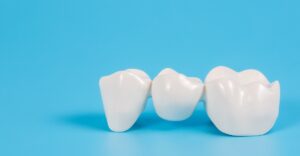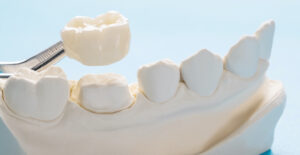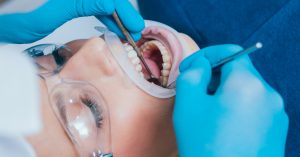Receding gums can be a painful and embarrassing condition. Gum disease can affect as many as 2 in 5 adults in America. It can cause sensitivity, pain, and even tooth loss. Fortunately, treatments are available to help reverse the effects of receding gums. In this article, we’ll discuss what causes receding gums and the different ways you can fix them.
What Causes Receding Gums?
Receding gums occur when the gum tissue around your teeth starts to pull away from the teeth. This can be caused by several factors, including:
• Poor oral hygiene: Not brushing and flossing regularly can lead to plaque buildup, which can cause inflammation of the gums.
• Tobacco use: Smoking or chewing tobacco can irritate your gums and cause them to recede.
• Hormonal changes: Hormonal changes during puberty or pregnancy can cause your gums to become more sensitive and prone to receding.
• Genetics: Some people are more prone to gum recession due to their genetics.
• Grinding or clenching your teeth: This puts extra pressure on your teeth and gums, leading to gum recession over time.
• Certain medications: Some medications, such as blood pressure medications or chemotherapy drugs, can cause gum recession as a side effect.
Treatment Options for Receding Gums
The treatment for receding gums depends on the underlying cause of the condition. Here are some of the most common treatments for receding gums:
• Improved oral hygiene: Brushing twice a day with a soft-bristled toothbrush and flossing daily are essential for preventing further gum recession. Your dentist may also recommend using an antibacterial mouthwash or special toothpaste for people with sensitive teeth and gums.
• Gum grafts: If your gum recession is severe, your dentist may recommend a gum graft procedure in which healthy tissue is taken from another part of your mouth and used to cover exposed roots or fill in gaps between teeth caused by gum recession.
• Medications: Your dentist may prescribe antibiotics or antiseptic mouthwashes if there is an infection present in your mouth that is causing the receding gums. They may also prescribe special medications that help reduce inflammation in the affected area.
• Surgery: In some cases, surgery may be necessary to repair damaged tissue or remove excess tissue from around the affected area.
• Laser therapy: Laser therapy has been shown to effectively reduce inflammation in the affected area and promote new tissue growth in some cases of severe gum recession.
In Closing
Receding gums are a common problem that many people experience at some point in their lives. Fortunately, there are treatments available that can help reverse the effects of receding gums and restore healthy tissue around your teeth once again. If you think you may have receding gums, call us today; the professionals at Warrier Family Dentistry have been helping families in Charlotte resolve their dental issues for years. We’re here to help! Contact us today so you can get back on track with good oral health as soon as possible!












